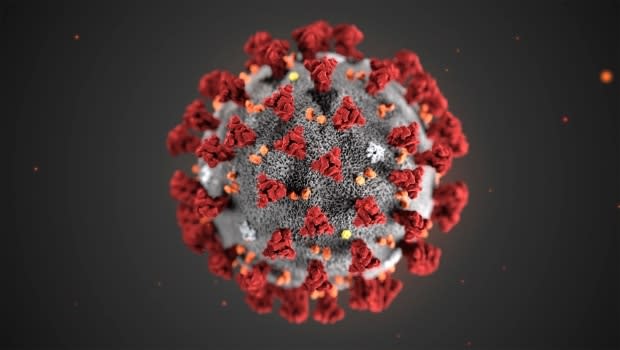COVID-19 has arrived in Saskatchewan. Be prudent, but don't panic
Human history is dotted with plagues, some terrifyingly lethal.
The Black Death that began in the 14th century killed a third of Europe's population. The Spanish Flu pandemic of 1918 killed an estimated 50 million, six times the number of soldiers who died in World War I.
More recently the world has dealt with Ebola, SARS, swine flu, bird flu, Zika, and now COVID-19, a new strain of coronavirus.
As of March 12, there had been more than 125,000 confirmed cases and about 4,600 deaths, according to the World Health Organization. Numbers have plateaued in China but are growing exponentially elsewhere in the world.
Now Saskatchewan has its first presumptive case. How bad is it and how bad will it get?
What we know so far
About 3.5 per cent of reported cases have died, but the rates vary wildly: 5.8 per cent in Wuhan, the epicentre of the outbreak, and just 0.7 per cent elsewhere in China; nearly 7 per cent in Italy and nearly 4 per cent in Iran; .8 per cent in South Korea and .2 per cent in Germany.
About 80 per cent of cases have either mild or no symptoms and are hence far less likely to be tested. The reported numbers are therefore almost certainly understimates, which means that the death rate is overstated, but it still seems higher than the typical one-in-1,000 (0.1 per cent) death rate for seasonal flu. Like "regular" flu, COVID-19 is harder on the elderly – in China about 15 per cent of infected people 80 or older have died.
The availability and quality of medical care matters. Wuhan's medical system was overwhelmed, though capacity rapidly increased.
If the COVID-19 pandemic turns out to be more flu than End Times menace, that's great news – mainly. The more benign the virus, the more difficult to contain. People with no or mild symptoms go about their business and the potential for widespread transmission increases dramatically.

Some experts predict that more than half the world's population will acquire the virus within a year. If so it will take its place alongside other viruses like Epstein-Barr (90 per cent prevalence, on occasion causes mononucleosis and weakens the immune system), and herpes simplex I (67 per cent prevalence, the cause of cold sores).
H1N1 — the so-called swine flu virus that grabbed the world's attention in 2009 — now infects about 20 per cent of the population and usually results in nothing more than mild cold symptoms.
COVID-19 shares 80 per cent of the genetic code of the SARS virus that resulted in 8,000 cases and 800 deaths world-wide in 2002-03. The SARS virus symptoms were more severe, the death rate was high and the containment response may have been effective because of a shorter incubation period. Originally Chinese authorities concealed information about SARS. Those same authorities humiliated the physicians who raised the COVID-19 alarm in December, but the public backlash appears to have led to more honest reporting.
Minimizing spread and impact
Whether Saskatchewan's single case turns out to be an anomaly or the first of hundreds or thousands to come is unknown.
Here's what we can do to minimize the virus's spread and its impact:
Foremost is effective public health policy. The government should issue and enforce travel advisories, communicate with the public about how to reduce risk and develop evidence-based criteria for ramping up protective measures in schools, workplaces, and other public spaces.
It should protect health workers with high-quality masks and enhanced training in infection control, screening and case management. It should also make sure hospitals and clinics have plans to deal with surges in severely symptomatic cases that need ICU-level care.
Second is vaccination. There are about 20 vaccines in development, but vaccines often work imperfectly (flu vaccines are about 30 to 50 per cent effective). By the time a good COVID-19 vaccine is available – typically a year or more – huge numbers may be infected and the world will already be dealing with the health and economic consequences.
Third is individual prudence. Wash your hands. You and your kids should stay home if your symptoms — fever, coughing, and especially shortness of breath — match COVID-19 cases. Ordinary surgical masks don't work — they're too leaky. If you think you need to get tested call public health or your doctor to get your marching orders.

Saskatchewan has some containment advantages. We have a single health authority that can co-ordinate policy and care. We don't have large and crowded cities vulnerable to rapid spread. Our health care system tends to shine in crisis situations.
But pandemics are harder on disadvantaged populations and indigenous peoples and many communities do not have local capacity to deal with severe cases. Saskatchewan has high rates of HIV and Hepatitis C infection, which can compromise the ability to fight off new viruses. Flu-like viruses tend to thrive and spread in cold climates.
China can lock down cities and build a 1000-bed hospital in eight days. We can't.
'Perspective is critical'
Viruses are a fact of life. It's natural to fear the new ones, but way too early to head for the hills with a truckload of canned food. Unless new evidence suggests otherwise, treat COVID-19 as an unusually serious type of flu.
Be liberal with the hand sanitizer and, should symptoms appear, self-isolate pending further advice.
Take your cues from trustworthy agencies like the Public Health Agency of Canada and the World Health Organization, not conspiracy trolls on the internet.
Perspective is critical. All of us need to get a grip.
This column is part of CBC's Opinion section. For more information about this section, please read this editor's blog and our FAQ.
Interested in writing for us? We accept pitches for opinion and point-of-view pieces from Saskatchewan residents who want to share their thoughts on the news of the day, issues affecting their community or who have a compelling personal story to share. No need to be a professional writer!
Read more about what we're looking for here, then email sask-opinion-grp@cbc.ca with your idea.


